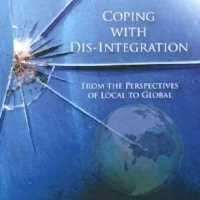BOOK: Knowing the Salween River: Resource Politics of a Contested Transboundary River
/Title:
Knowing the Salween River: Resource Politics of a Contested Transboundary River
Editors:
Carl Middleton and Vanessa Lamb
Year:
2019
Further details about the book are available here.
This open access book focuses on the Salween River, shared by China, Myanmar, and Thailand, that is increasingly at the heart of pressing regional development debates. The basin supports the livelihoods of over 10 million people, and within it there is great socio-economic, cultural and political diversity. The basin is witnessing intensifying dynamics of resource extraction, alongside large dam construction, conservation and development intervention, that is unfolding within a complex terrain of local, national and transnational governance. With a focus on the contested politics of water and associated resources in the Salween basin, this book offers a collection of empirical case studies that highlights local knowledge and perspectives. Given the paucity of grounded social science studies in this contested basin, this book provides conceptual insights at the intersection of resource governance, development, and politics of knowledge relevant to researchers, policy-makers and practitioners at a time when rapid change is underway.
For more information about our project Salween Water Governance, please visit here.












